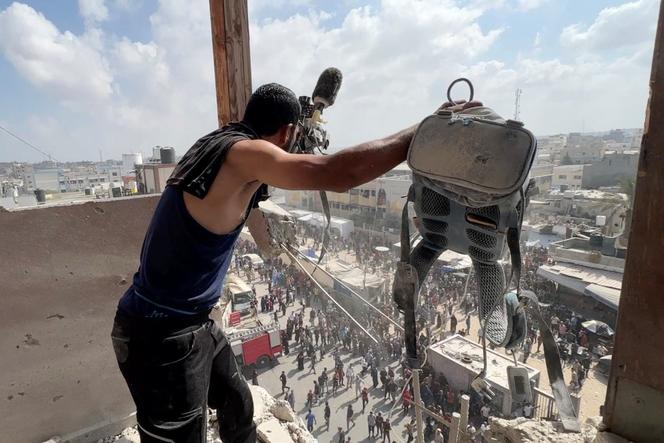


Footage shot from the ground showed about 10 men working in a stairwell that had been destroyed just minutes earlier by an Israeli strike. They were attending to a body; one of them was filming and taking photos. A few seconds later, an extremely violent explosion hit, engulfing the stairway in smoke, dust and debris. On the morning of Monday, August 25, the Israeli army struck the same spot at Nasser Hospital in Khan Yunis, southern Gaza, for a second time. The toll was heavy: more than 20 dead, including medical staff and five Palestinian journalists, contracted with agencies such as Reuters, the Associated Press and Al Jazeera.
A Reuters camera captured everything. Confronted by the violence of the footage, the Israeli military, which did not specify the reasons for the strike on the hospital, announced an investigation. Prime Minister Benjamin Netanyahu also responded that evening, expressing his regrets. "Israel values the work of journalists, medical staff and all civilians," wrote Netanyahu, even as Israel's actions over the past 22 months have contradicted that statement – starting with its ban on international reporters entering the Palestinian enclave independently.
You have 83.58% of this article left to read. The rest is for subscribers only.
